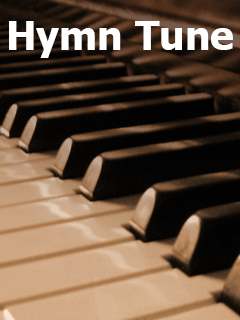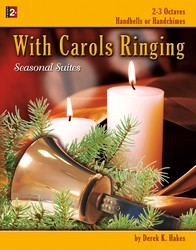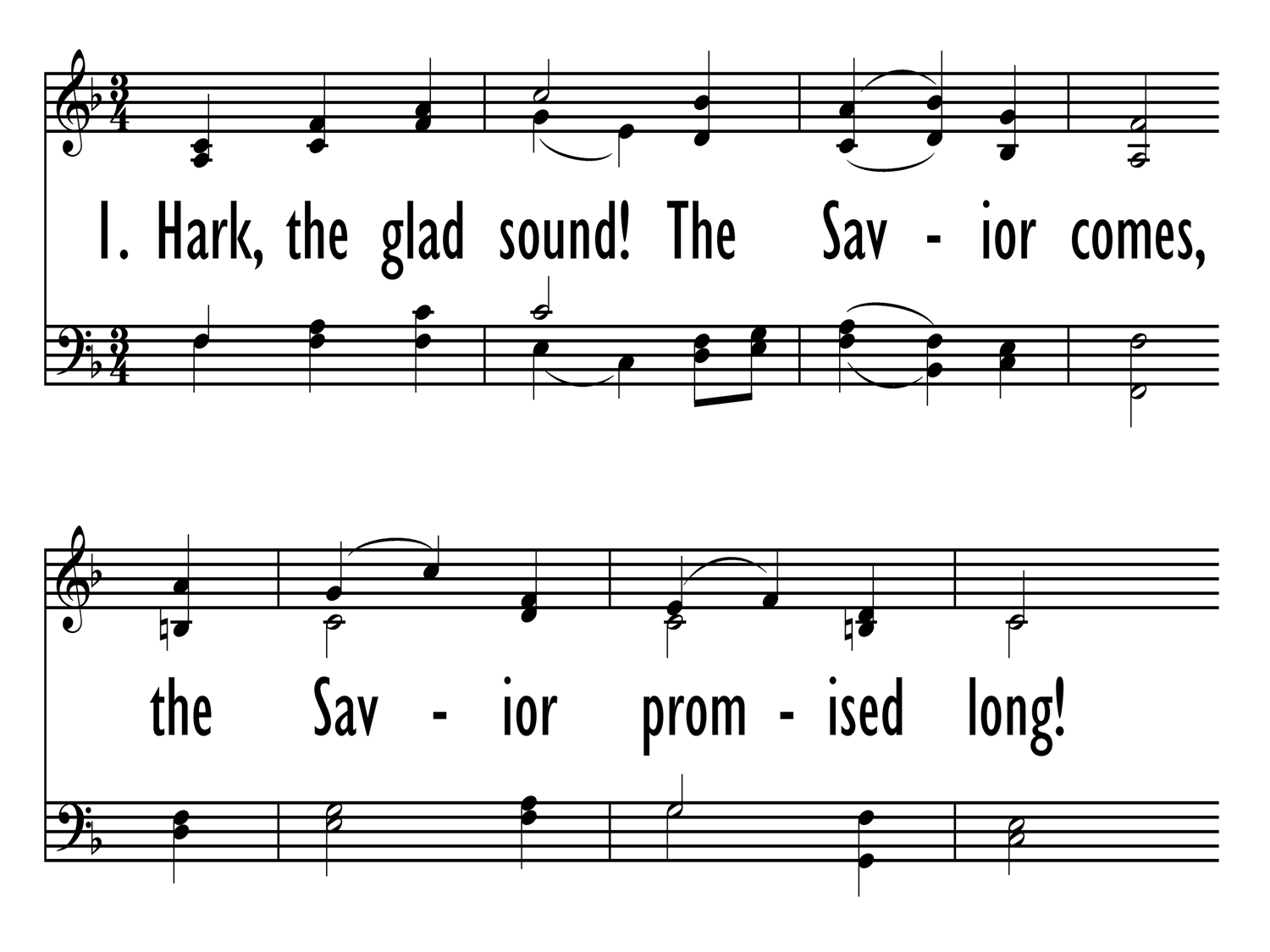- |
User Links
RICHMOND (Haweis)

RICHMOND (Haweis)
Composer: Thomas Haweis (1792)Published in 323 hymnals
Printable scores: PDF, MusicXML
Audio files: MIDI, Recording
Composer: Thomas Haweis
 Thomas Haweis (b. Redruth, Cornwall, England, 1734; d. Bath, England, 1820) Initially apprenticed to a surgeon and pharmacist, Haweis decided to study for the ministry at Oxford and was ordained in the Church of England in 1757. He served as curate of St. Mary Magdalen Church, Oxford, but was removed by the bishop from that position because of his Methodist leanings. He also was an assistant to Martin Madan at Locke Hospital, London. In 1764 he became rector of All Saints Church in Aldwinkle, Northamptonshire, and later served as administrator at Trevecca College, Wales, a school founded by the Countess of Huntingdon, whom Haweis served as chaplain. After completing advanced studies at Cambridge, he published a Bible commentary and a volume… Go to person page >
Thomas Haweis (b. Redruth, Cornwall, England, 1734; d. Bath, England, 1820) Initially apprenticed to a surgeon and pharmacist, Haweis decided to study for the ministry at Oxford and was ordained in the Church of England in 1757. He served as curate of St. Mary Magdalen Church, Oxford, but was removed by the bishop from that position because of his Methodist leanings. He also was an assistant to Martin Madan at Locke Hospital, London. In 1764 he became rector of All Saints Church in Aldwinkle, Northamptonshire, and later served as administrator at Trevecca College, Wales, a school founded by the Countess of Huntingdon, whom Haweis served as chaplain. After completing advanced studies at Cambridge, he published a Bible commentary and a volume… Go to person page >Tune Information
| Title: | RICHMOND (Haweis) |
| Composer: | Thomas Haweis (1792) |
| Meter: | 8.6.8.6 |
| Incipit: | 51354 34213 25171 |
| Key: | G Major |
| Copyright: | Public Domain |
Alternative Tunes
Notes
RICHMOND (also known as CHESTERFIELD) is a florid tune originally written by Thomas Haweis (PHH 270) and published in his collection Carmina Christo (1792). Samuel Webbe, Jr., adapted and shortened the tune and published it in his Collection of Psalm Tunes (1808). It was reprinted in 1853 in Webbe's Psalmody. Webbe named the tune after Rev. Leigh Richmond, a friend of Haweis's. The CHESTERFIELD name comes from Lord Chesterfield, a statesman who frequently visited Selina Hastings, Countess of Huntingdon, for whom Haweis worked as a chaplain.
At its opening the tune has a "rocket" motif radiating a sense of confidence. With its various revisions the melody has lost its original florid character, but the harmonization (from Hymns Ancient and Modern Revised, 1950) provides strength and vigor, and the descant by Craig S. Lang (PHH 253) introduces another florid line for festive singing of stanza 4.
Sing stanza 1 in unison and stanzas 2 and 3 with jubilant accompaniment. Because stanza 4 is the only one directed to Christ, it should receive a different musical treat¬ment than the other stanzas. Strong unison singing, a full accompaniment, and the use of the vocal or instrumental descant will help the "glad hosannas. . . ring."
Like his father Samuel, Sr. (PHH 112), Samuel Webbe, Jr. (b. London, 1770; d. London, 1843), was very active in both sacred and secular music. Together they published A Collection of Motets and Antiphons (1792). He was active as organist in Liverpool and London at both Unitarian and Roman Catholic churches.
--Psalter Hymnal Handbook, 1988
Timeline
Arrangements
Harmonizations, Introductions, Descants, Intonations
|
Organ Solo
|
Piano Solo
|
Piano and Organ Duet
|
Instruments: Instrumental Solo with Organ
|
Instruments: Organ and Treble Instrument
|
Media
Christian Classics Ethereal Hymnary #460
The Cyber Hymnal #576
Text: Blest Day of God, Most Calm, Most BrightThe Cyber Hymnal #878
Text: City of God, How Broad and FarThe Cyber Hymnal #2358
Text: How Few Receive with Cordial FaithThe Cyber Hymnal #3748
Text: Lord, if Thine Eye Surveys Our FaultsThe Cyber Hymnal #4235
Text: My God, the Spring of All My JoysThe Cyber Hymnal #4817
Text: O for a Heart to Praise My GodThe Cyber Hymnal #4819
Text: O for a Shout of Sacred JoyThe Cyber Hymnal #5102
Text: O Lord, I Will Delight in TheeThe Cyber Hymnal #7112
Text: Walk in the LightThe Cyber Hymnal #7658
Text: What Shall I Do, My God to Love?The Cyber Hymnal #9524
Text: Behold Thy Waiting Servant, LordThe Cyber Hymnal #9590
Text: Remark, My Soul, The Narrow BoundsThe Cyber Hymnal #10964
Text: Let Us Adore The Grace That SeeksThe Cyber Hymnal #12893
Text: To Jordan's Stream The Savior GoesEvangelical Lutheran Worship #239
Text: Hark, the Glad Sound!Psalter Hymnal (Gray) #335
Text: Hark, the Glad Sound! The Savior ComesSmall Church Music #325
- PDF Score (PDF)
The United Methodist Hymnal #417
Text: O For a Heart to Praise My GodWith Heart and Voice: songs for all God's children #69
Text: Hark, the Glad Sound! The Savior Comes- MIDI file from Christian Classics Ethereal Hymnary #460
- MIDI file from Christian Classics Ethereal Hymnary #460
- MIDI file from The Cyber Hymnal #576
- MIDI file from The Cyber Hymnal #878
- MIDI file from The Cyber Hymnal #2358
- MIDI file from The Cyber Hymnal #3748
- MIDI file from The Cyber Hymnal #4235
- MIDI file from The Cyber Hymnal #4817
- MIDI file from The Cyber Hymnal #4819
- MIDI file from The Cyber Hymnal #5102
- MIDI file from The Cyber Hymnal #7112
- MIDI file from The Cyber Hymnal #7658
- MIDI file from The Cyber Hymnal #9524
- MIDI file from The Cyber Hymnal #9590
- MIDI file from The Cyber Hymnal #10752
- MIDI file from The Cyber Hymnal #10964
- MIDI file from The Cyber Hymnal #12893
- MIDI file from The Cyber Hymnal #14359
- MIDI file from The Cyber Hymnal #14739
- MIDI file from Evangelical Lutheran Worship #239
- Audio recording from Evangelical Lutheran Worship #239
- Audio recording from Evangelical Lutheran Worship #551
- Audio recording from Glory to God: the Presbyterian Hymnal #266
- Audio recording from Lift Up Your Hearts: psalms, hymns, and spiritual songs #60
- Audio recording from Lift Up Your Hearts: psalms, hymns, and spiritual songs #60
- Audio recording from Lift Up Your Hearts: psalms, hymns, and spiritual songs #60
- Audio recording from Lift Up Your Hearts: psalms, hymns, and spiritual songs #60
- Audio recording from Lift Up Your Hearts: psalms, hymns, and spiritual songs #60
- MIDI file from Psalter Hymnal (Gray) #335
- MIDI file from Psalter Hymnal (Gray) #335
- Audio recording from Small Church Music #54
- Audio recording from Small Church Music #325
- Audio recording from Small Church Music #325
- Audio recording from Small Church Music #544
- Audio recording from Small Church Music #544
- Audio recording from Small Church Music #578
- Audio recording from Small Church Music #2061
- Audio recording from Small Church Music #3384
- Audio recording from Small Church Music #3773
- MIDI file from TTT-Himnaro Cigneta #177b
- Audio recording from The United Methodist Hymnal #57b
- MIDI file from The United Methodist Hymnal #417
- Audio recording from The United Methodist Hymnal #417
- MIDI file from With Heart and Voice: songs for all God's children #69
- MIDI file from With Heart and Voice: songs for all God's children #69


 My Starred Hymns
My Starred Hymns






